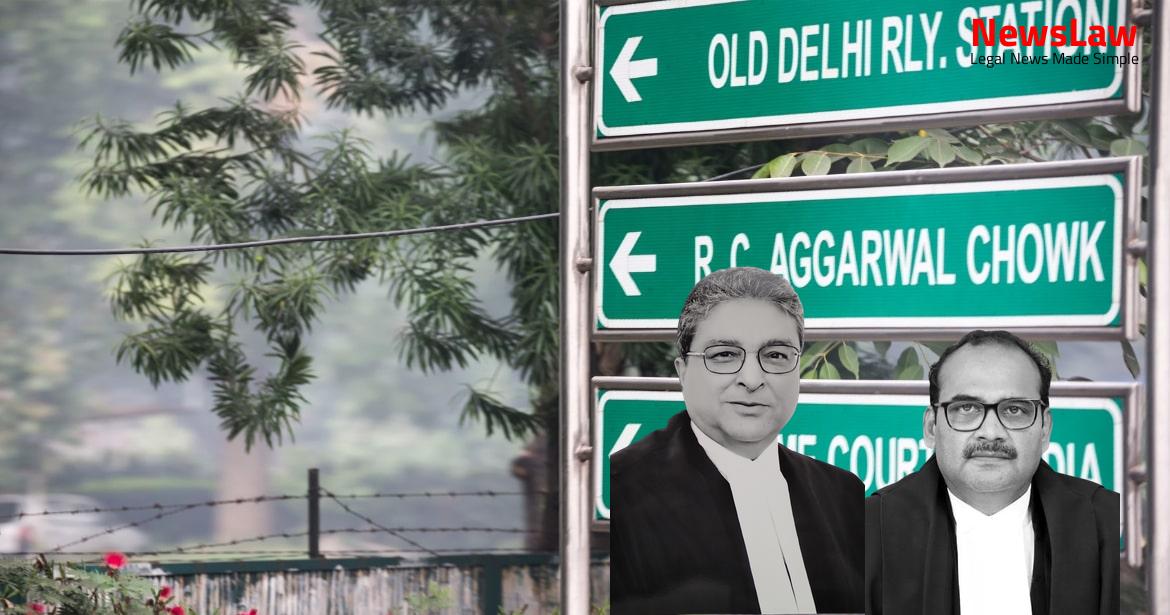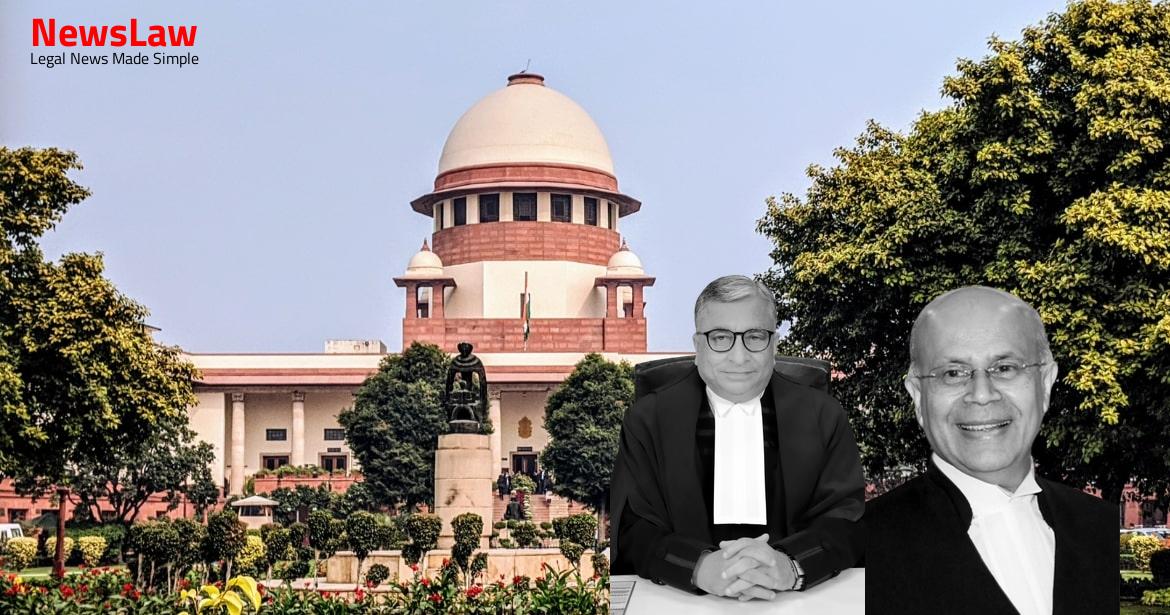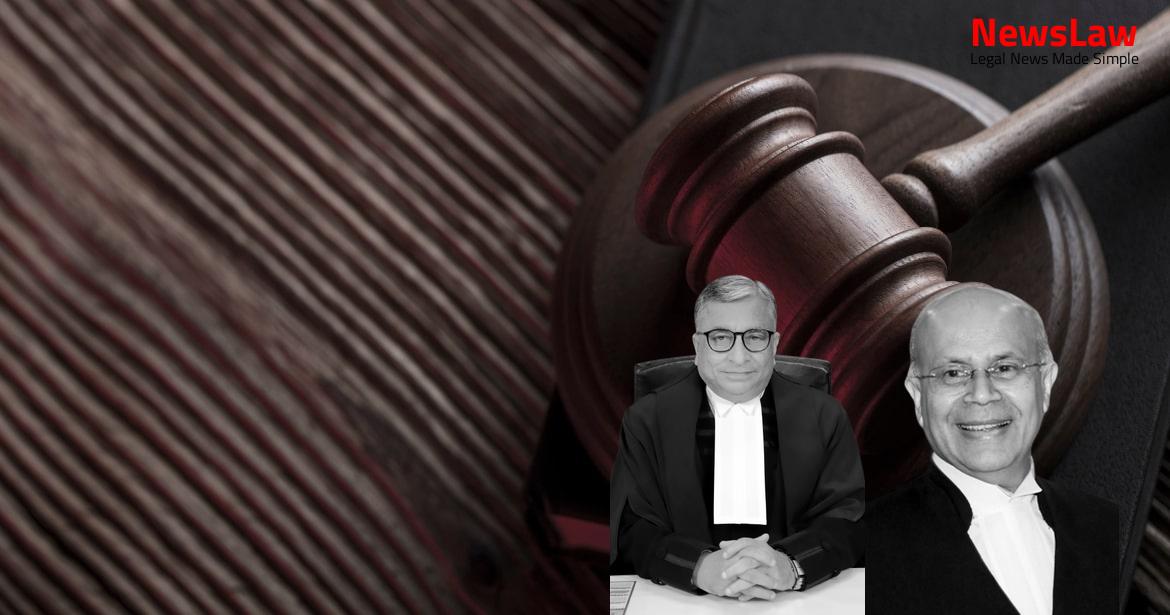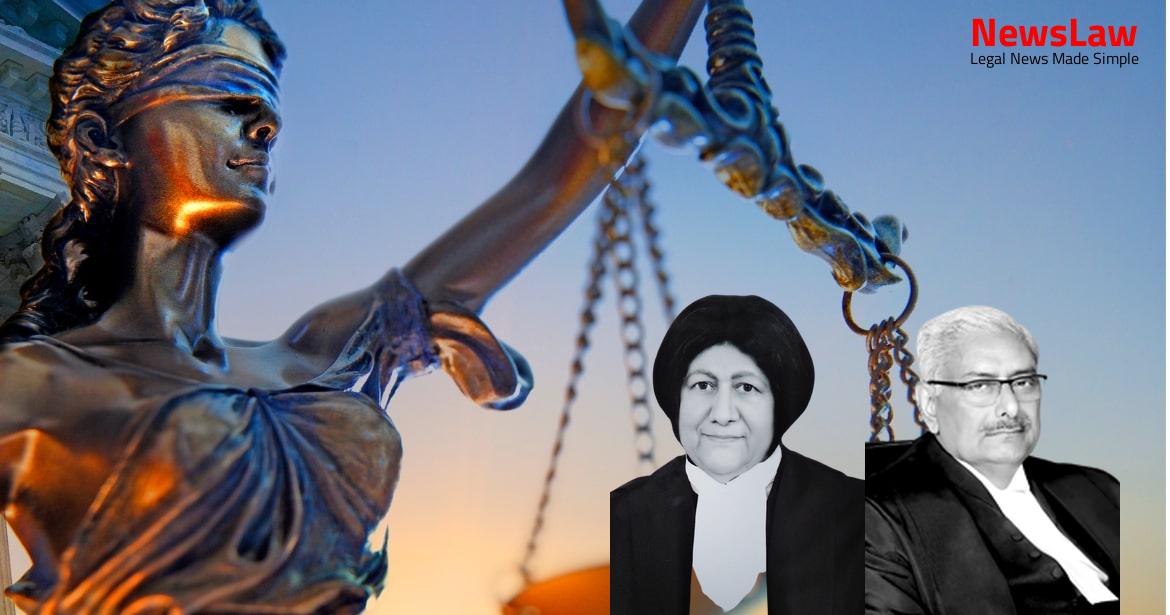Explore a critical analysis of a recent legal case involving corruption charges, where the focus is on the court’s legal reasoning and evaluation of evidence. The case highlights the significance of proving demand and acceptance of illegal gratification to establish guilt beyond a reasonable doubt. Stay tuned to understand the complexities of convicting individuals in corruption cases based on solid legal grounds.
Facts
- The appeal questions the validity of the judgment in Criminal Appeal No. 89 of 2009 by the High Court of Delhi.
- The judgment confirmed the convictions under Sections 7 & 13(2) of the Prevention of Corruption Act, 1988.
- The appellant was sentenced to 2 years RI and a fine for the offence under Section 7, and 2½ years RI and a fine for the offence under Section 13(2).
- Both sentences were ordered to run concurrently.
- The High Court relied on the testimony of PW3-Madhu Bala to confirm the findings of the Trial Court.
- The conversation on the cassette identified by PW3 was deemed as proof of the demand, despite inaudibility and lack of proof of non-tampering.
- The phenolphthalein test of the appellant did not change the color of the Sodium Carbonate solution to pink.
- The Trial Court found the appellant guilty of demanding and accepting a bribe of Rs. 15,000 from the complainant while working as an Assistant Commissioner of Income Tax.
- The conversation between the appellant and the complainant was attempted to be recorded but was not successful.
- Traces of phenolphthalein were found in the water collected from the appellant’s office and sent for examination.
- Money was eventually recovered from the visitor’s side of the office table under the dak pad after the complainant’s indication.
- The appellant was charged under Sections 7 & 13(2) read with Section 13(1)(d) of the PC Act.
- The alleged demands for bribes were said to have happened on four occasions, with varying amounts, and were partially recorded in conversations.
- The currency notes handed over by the complainant were laced with phenolphthalein powder to trace the bribe exchange.
- Allegations of bribe demands through the Chartered Accountant and subsequent reduced demands were presented.
- The appellant was found guilty, leading to the filing of an appeal.
Also Read: Court’s Jurisdiction in Re-appraising Arbitrator’s Findings
Arguments
- The conclusion of the Trial Court and the High Court is based on surmises and an erratic approach.
- The conclusion ignores the legal position as enunciated and cannot be sustained on the facts of the case.
- Referring to the judgment of Meena (Smt) w/o Balwant Hemke vs State of Maharashtra (2000)5 SCC 21 where recovery of currency notes and positive phenolphthalein test are deemed insufficient to establish guilt in peculiar circumstances.
Also Read: Contrary Directions in Issuance of Letter of Intent
Analysis
- Demand of money or illegal gratification by the accused must be proved, along with acceptance and recovery of the same with motive.
- Transcript is a statement of complainant under Section 161 Cr.P.C., and must be free from tampering.
- Witness testimonies indicate no demand of money from the appellant/accused.
- Recording Exb. P2 was inaudible and not proved during court proceedings.
- No recording of the conversation between the accused and the complainant during the trap on 9.3.2000.
- Mere recovery of currency notes is not sufficient unless it is proved that the accused voluntarily accepted the money as a bribe.
- Evidence of pre-trap demand on 7.3.2000 has not been established.
- Lack of corroborative evidence of demand on both 7.3.2000 and 9.3.2000 except for the testimony of the complainant.
- Accused’s application for a transcript of the conversation was denied as no transcript was available, raising doubts about the transcript’s reliability.
- The findings on the presumption under Section 20 of the PC Act are deemed legally flawed due to lack of evidence to prove demand and acceptance.
- The sole testimony of the complainant, who is the interested witness, cannot be relied upon without corroboration with independent evidence.
- For an offence under Section 7 of PC Act, the demand of illegal gratification is essential to prove guilt.
- Recovery must follow the proof of demand as per judgments in relevant cases like B. Jayaraj vs State of Andhra Pradesh and C.M. Girish Babu vs CBI.
- Presumption under Section 20 of PC Act can only be drawn when demand is proven and money is voluntarily accepted.
- Mere possession or recovery of currency notes is not enough to constitute the offence without proof of demand.
- Proof of acceptance of illegal gratification can only follow proof of demand.
- Recorded conversations in trap cases are admissible if the voice of the speaker is identified by the maker of the record and others.
- The appellant’s conviction has not been proved and is based on conjectures and erratic evaluation.
- The concurrent findings of the Trial Court and High Court lack due appreciation of the evidence.
- No cogent evidence is available to prove the guilt of the accused under relevant sections of the PC Act.
- The findings of conviction are based on conjectures and erratic evaluation of evidence.
- The Court has an obligation to correct manifest errors.
- Judgments of the Courts below suffer from serious infirmities and manifest error.
- There is no proof of demand at pre-trap stage or during the trap.
- The accused should be considered ignorant until the charges are established beyond a reasonable doubt.
Also Read: Application for Stay in Civil Suit Rejected: Court’s Legal Analysis
Decision
- The appellant is found not guilty of the charges against him.
- The concurrent judgments of the Trial Court and the High Court have been set aside.
- The appeal has been allowed, and the appellant is honourably acquitted.
Case Title: RAJESH GUPTA Vs. STATE THROUGH CENTRAL BUREAU OF INVESTIGATION (2022 INSC 359)
Case Number: Crl.A. No.-001769-001769 / 2014



